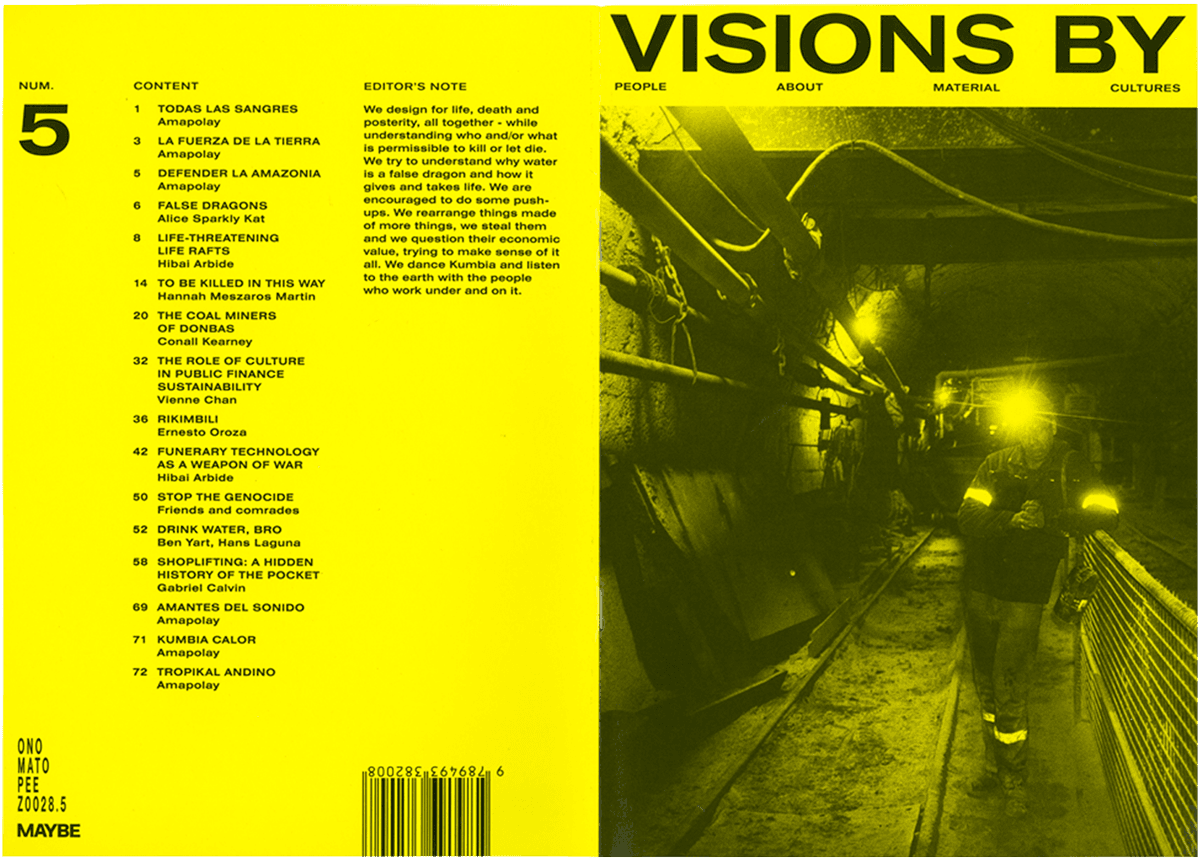
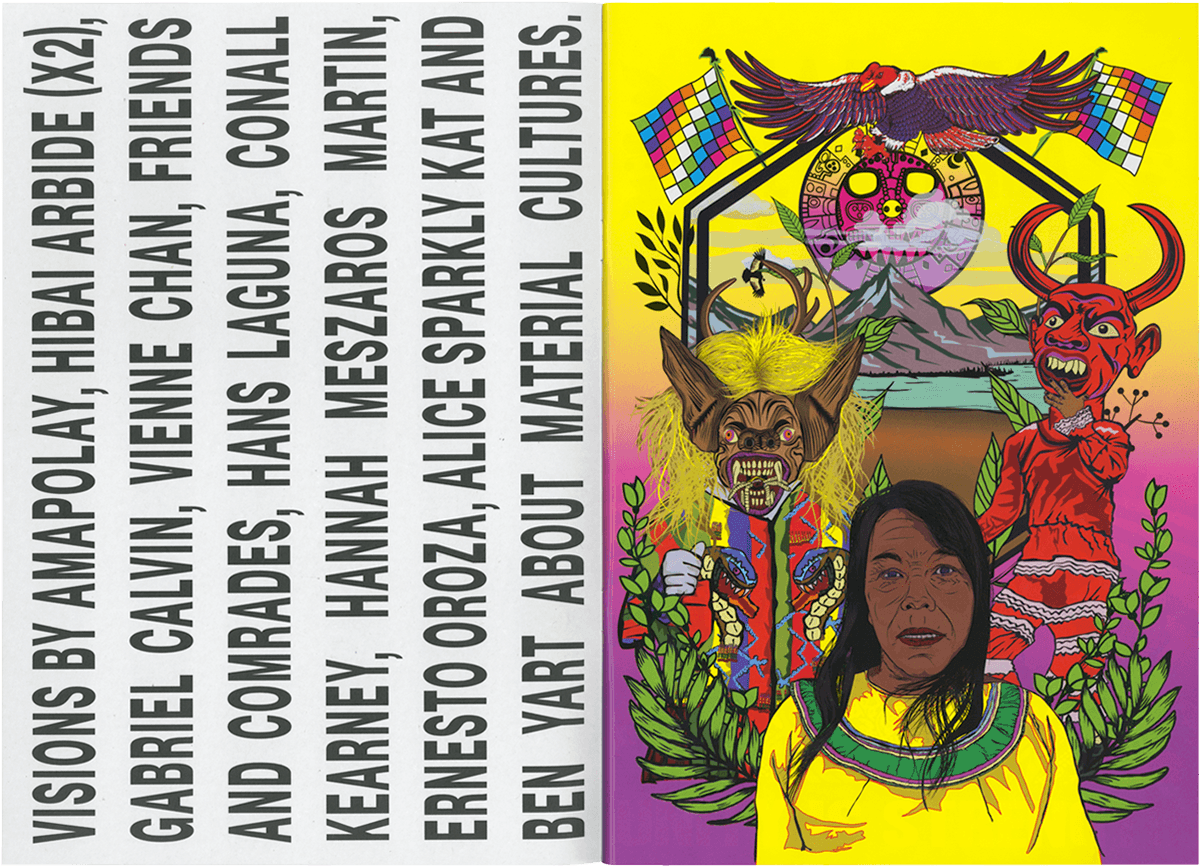
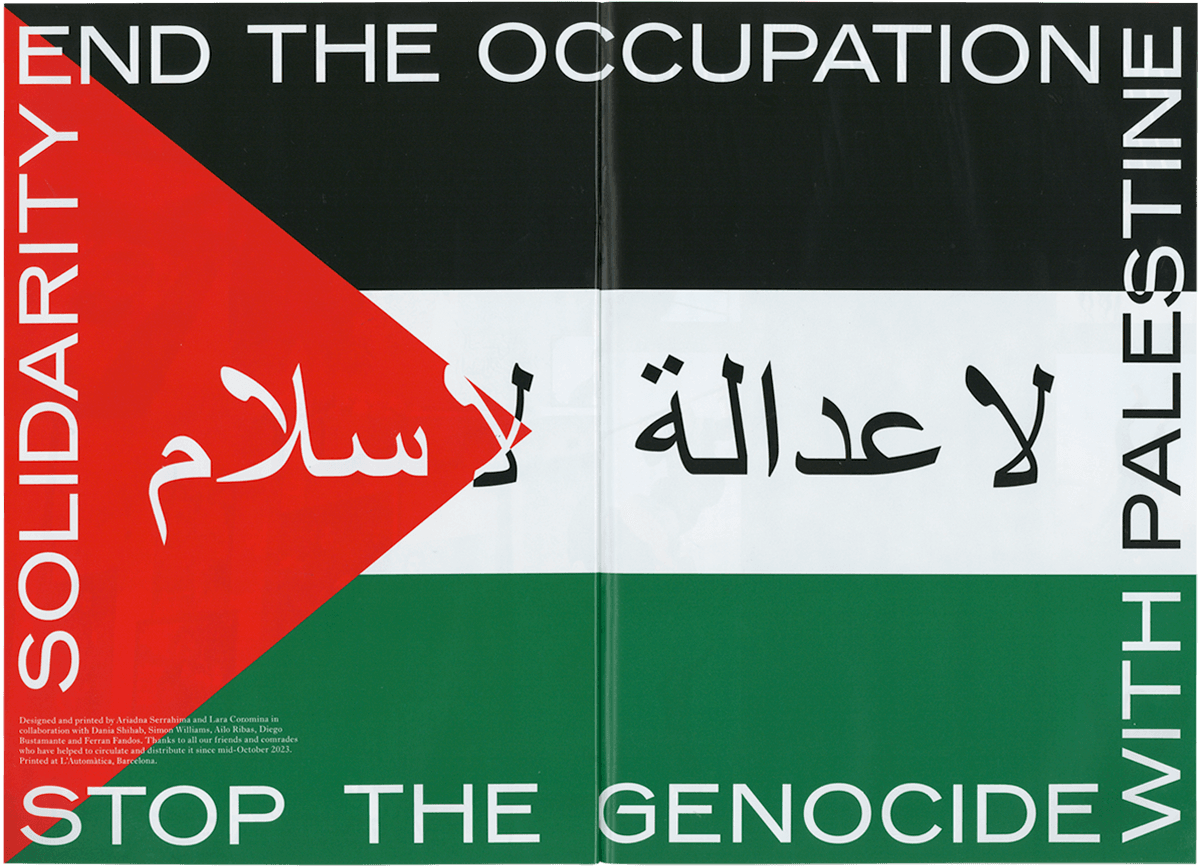
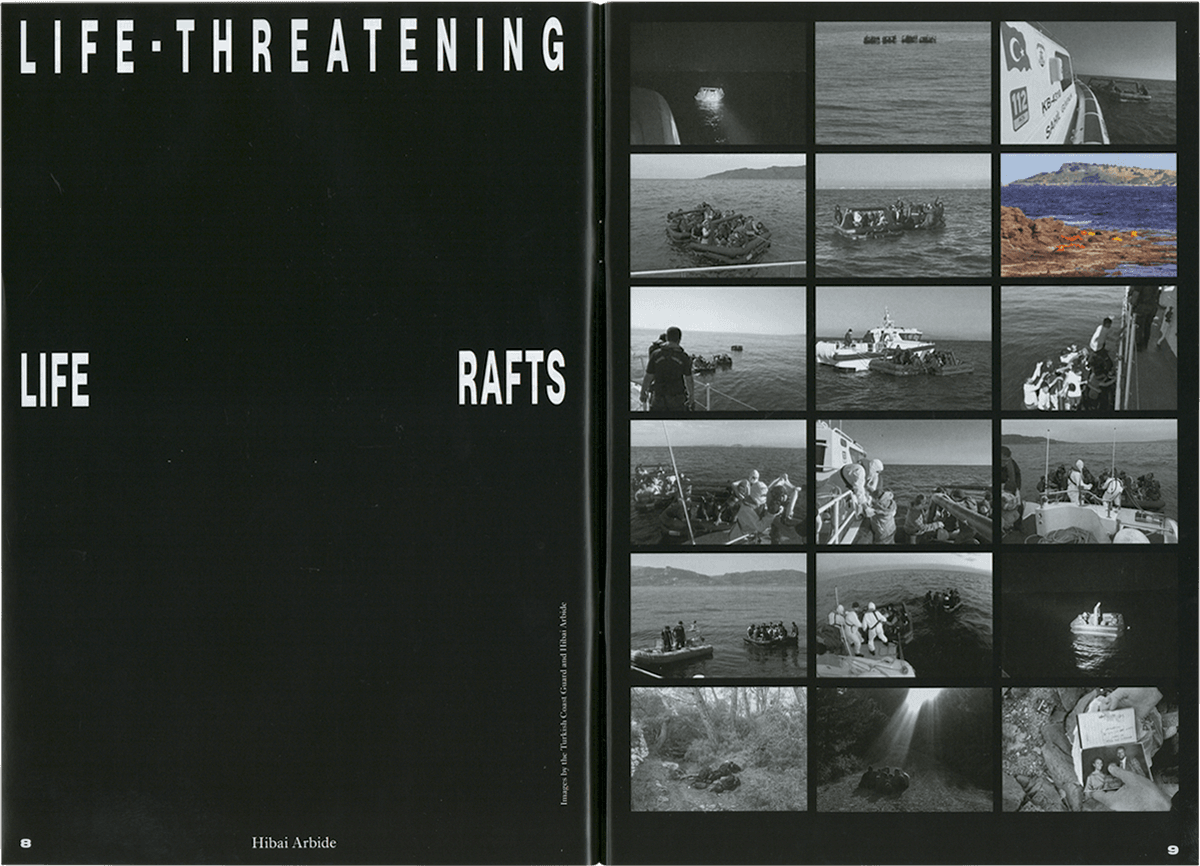
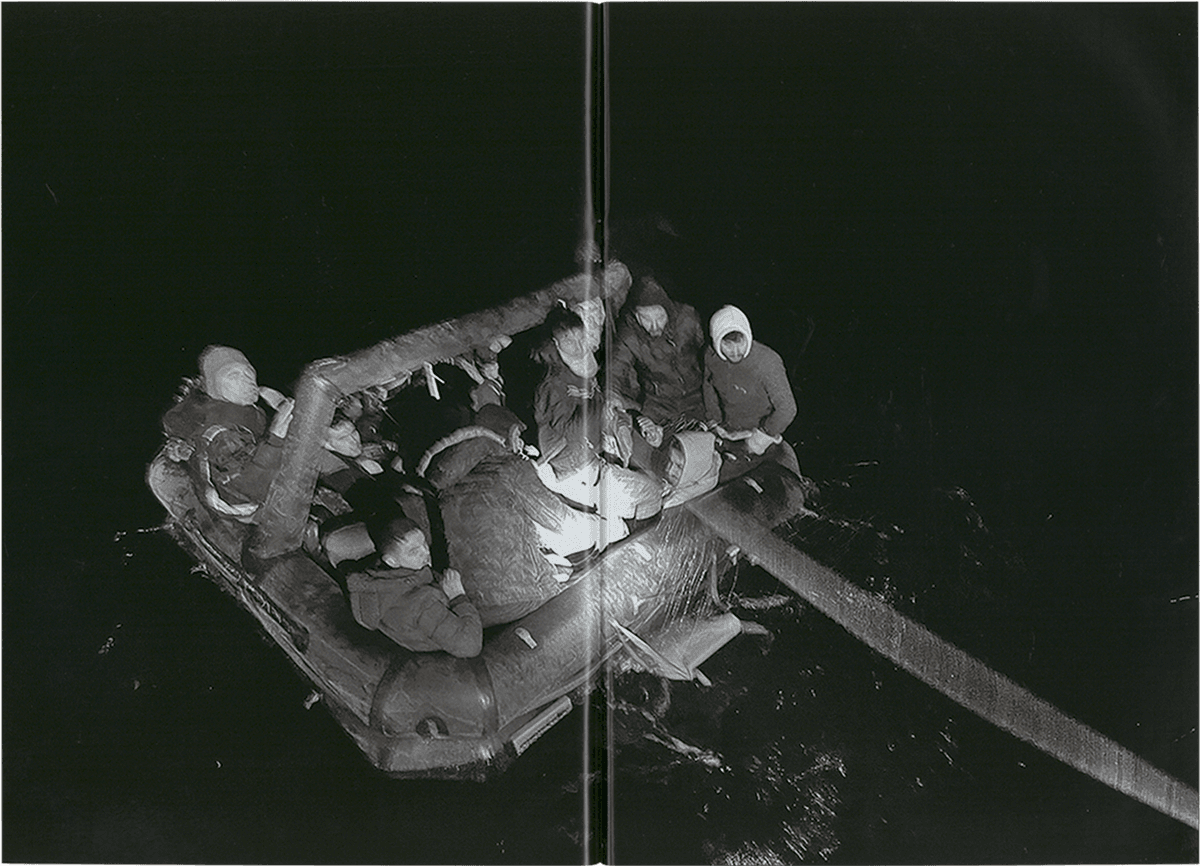
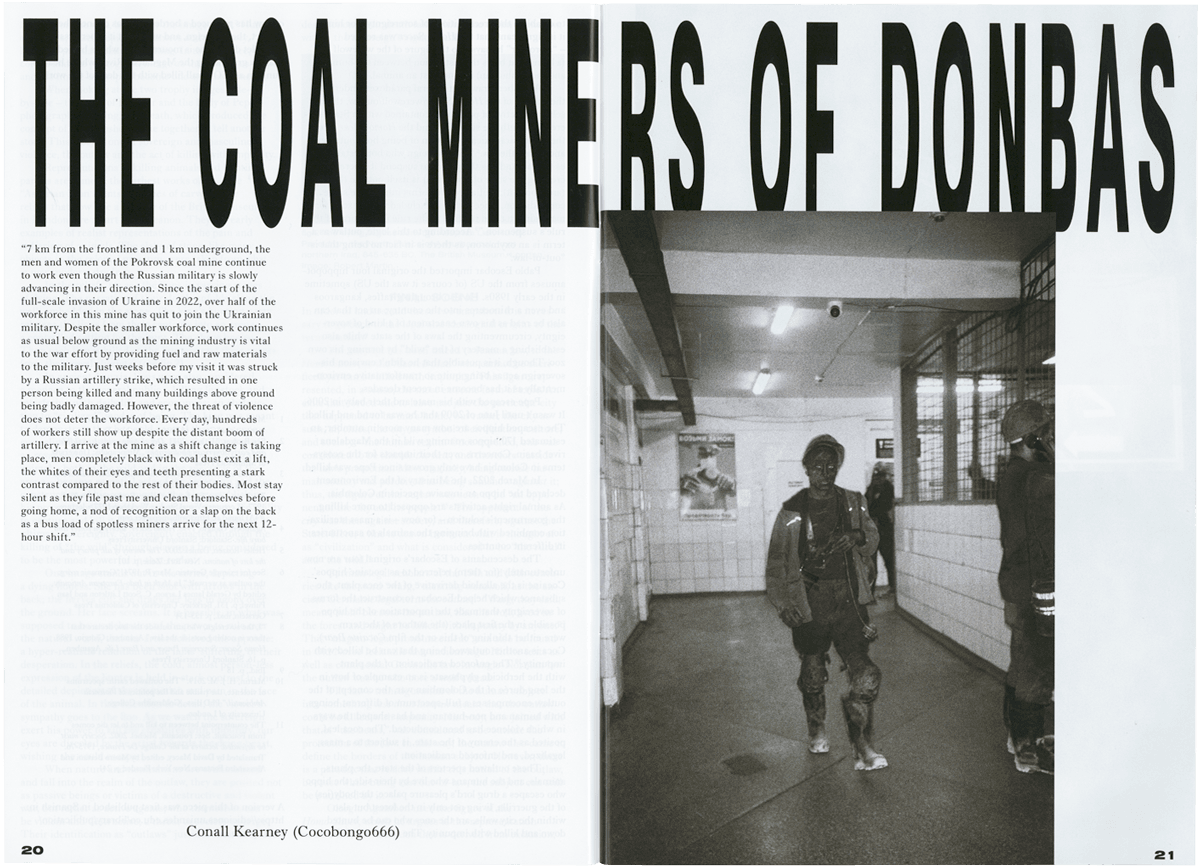
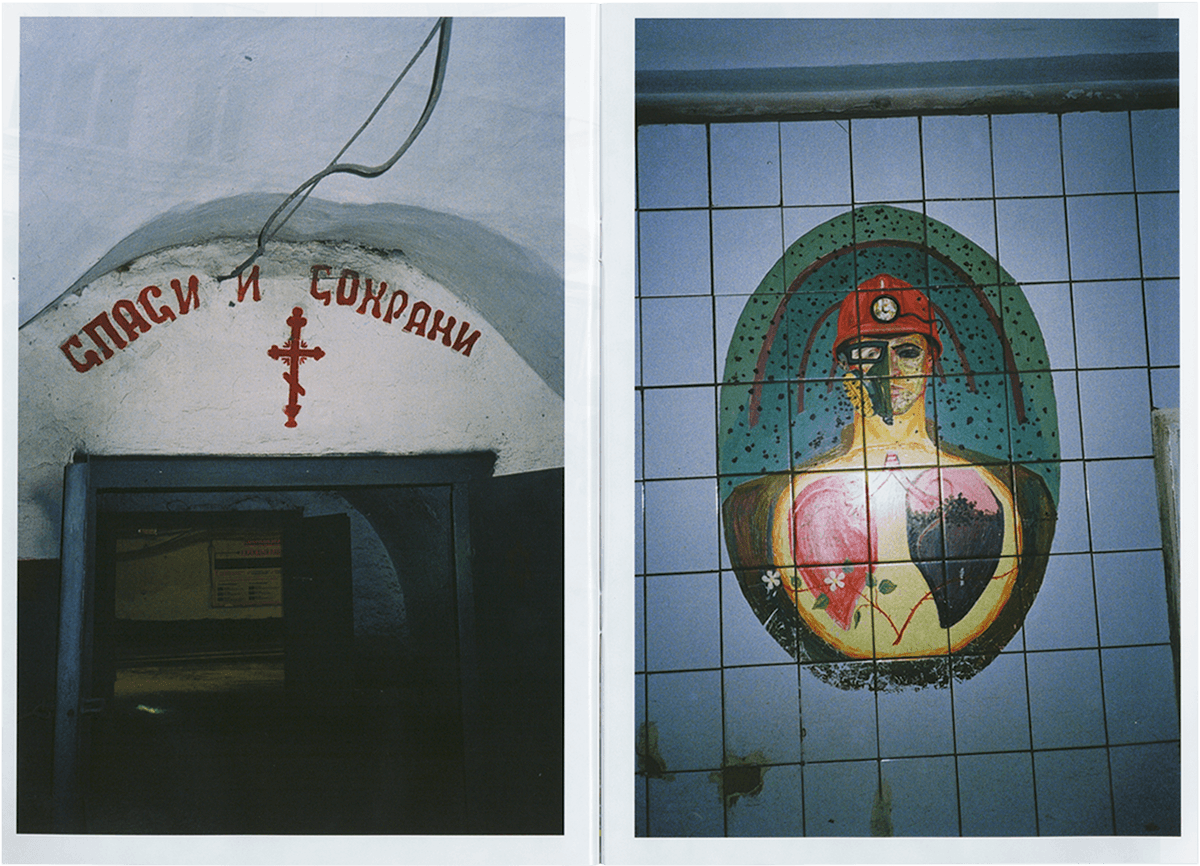
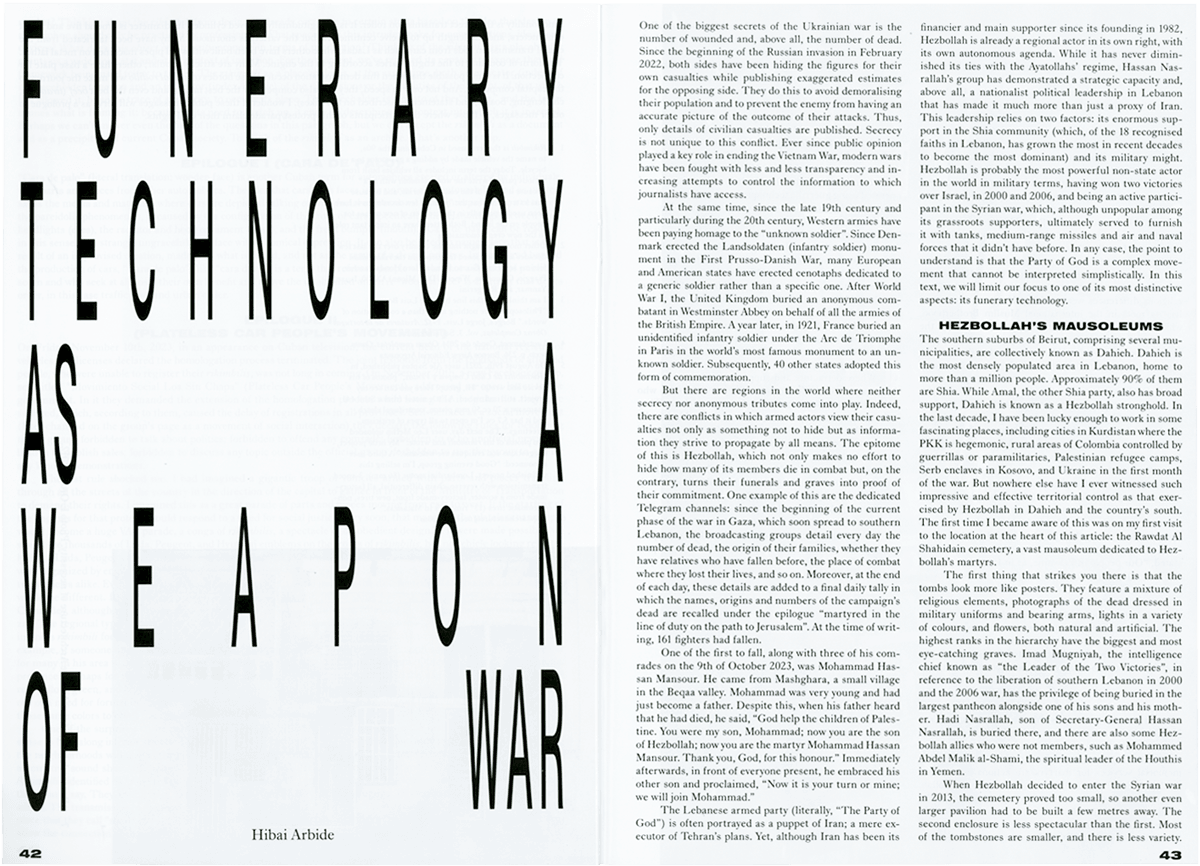
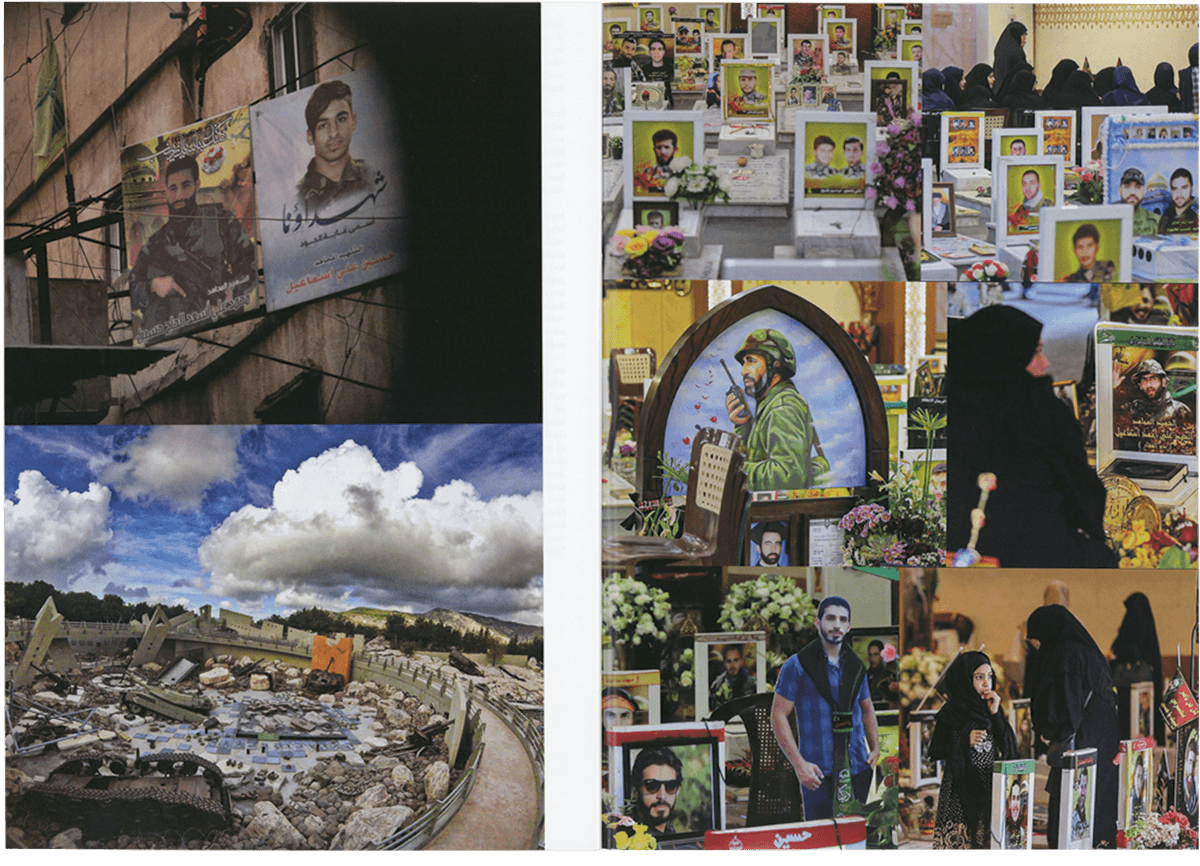
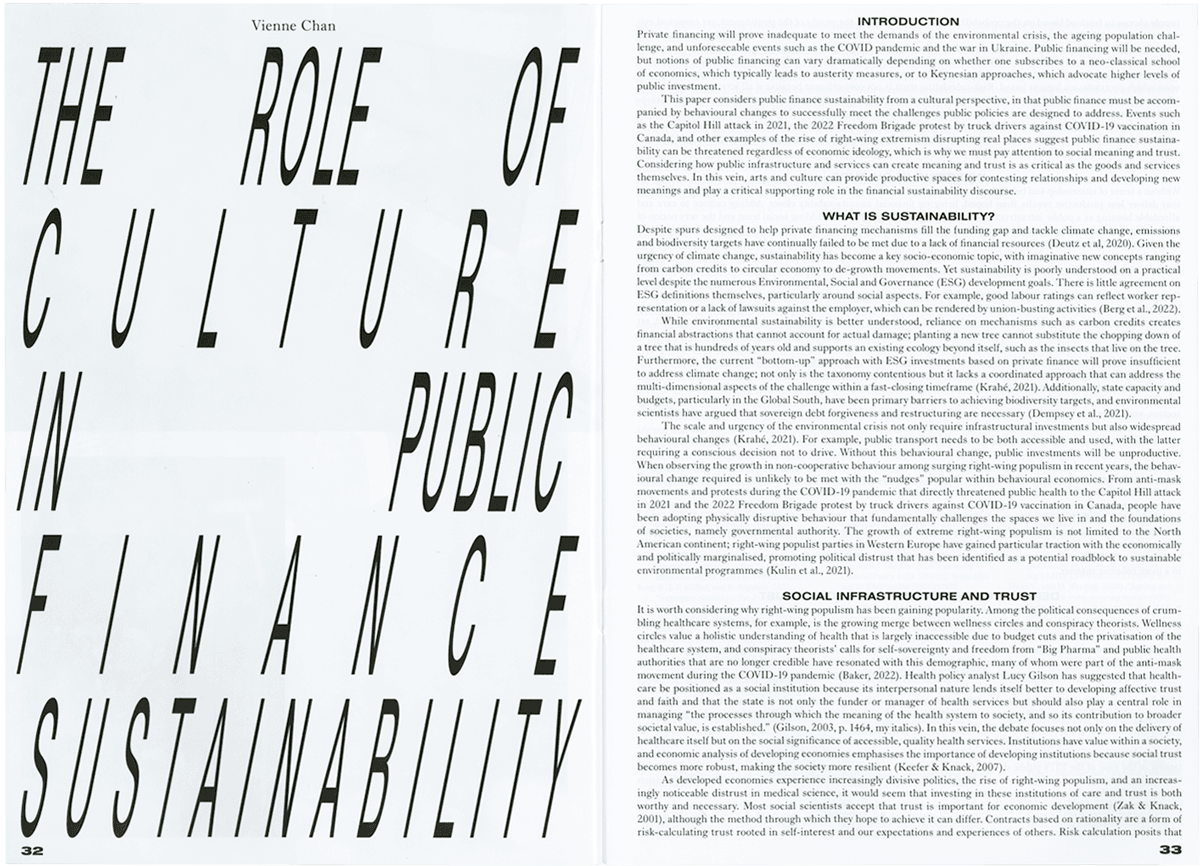
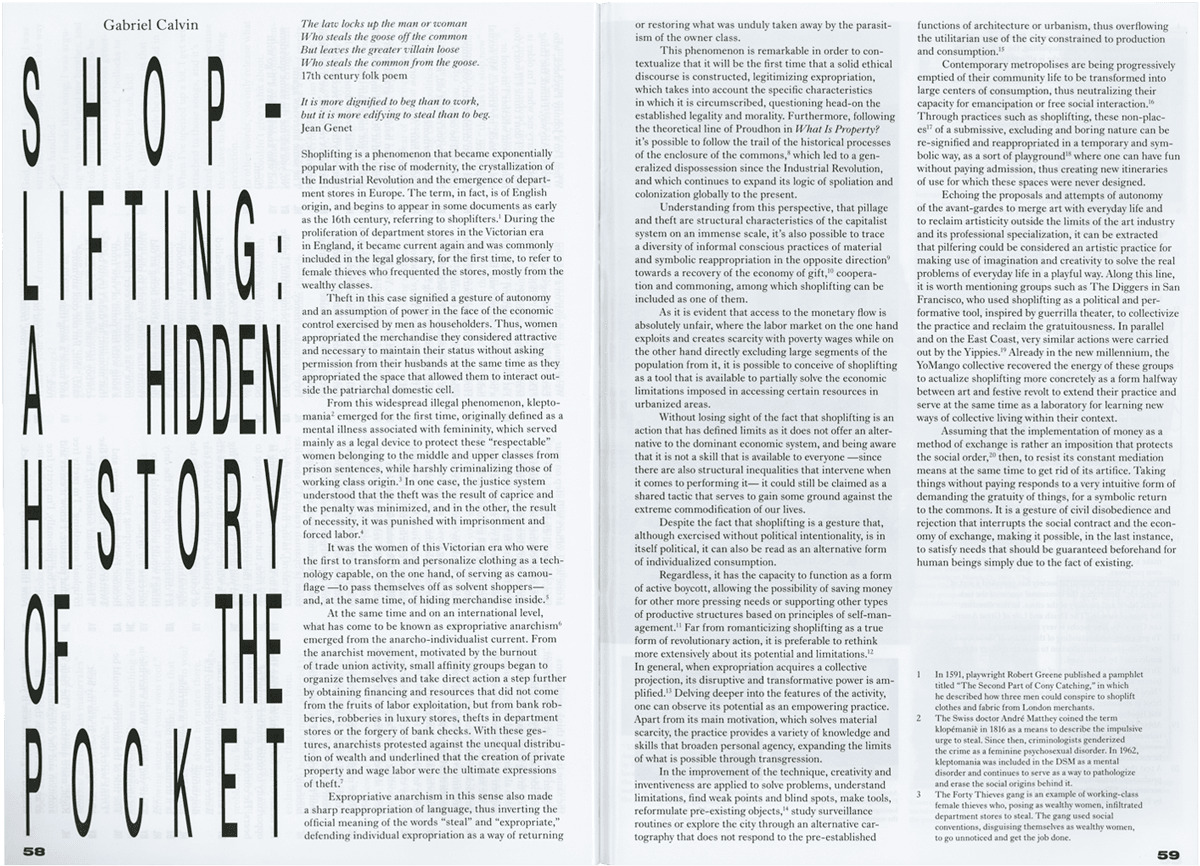
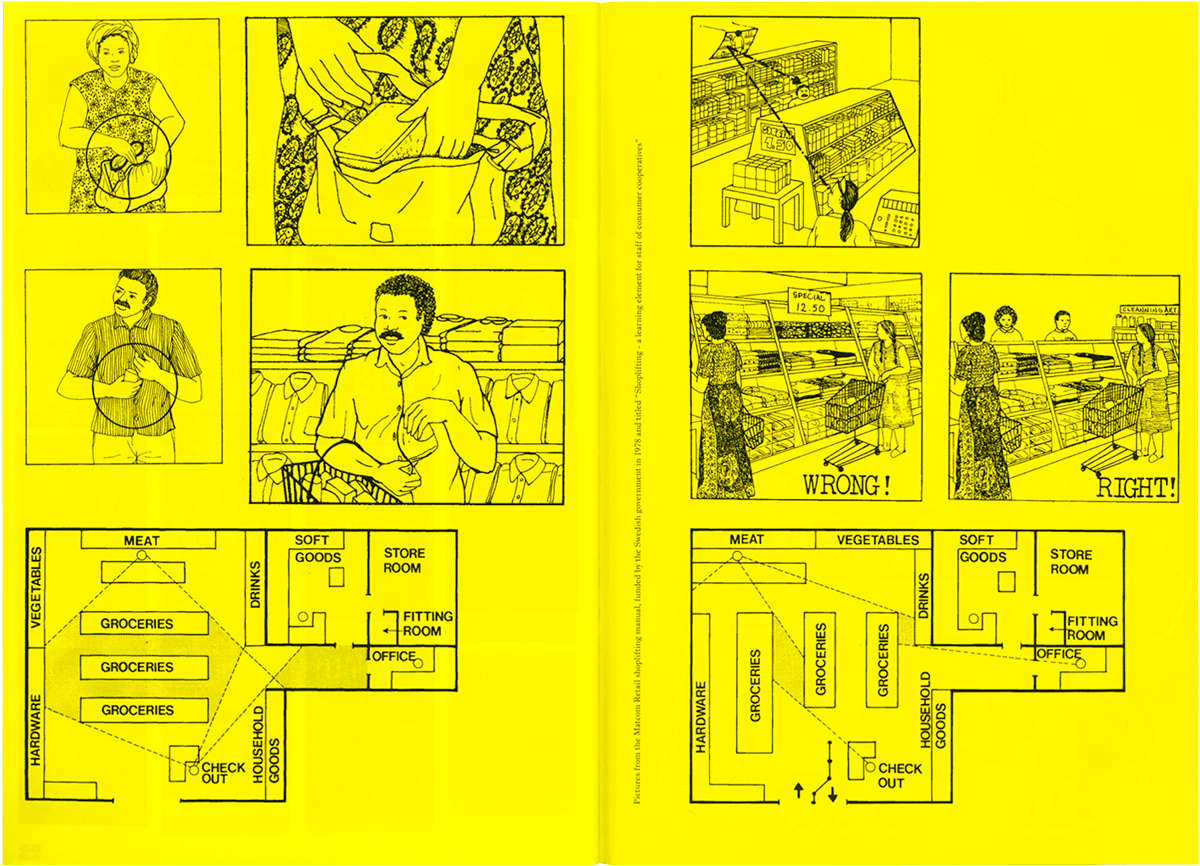
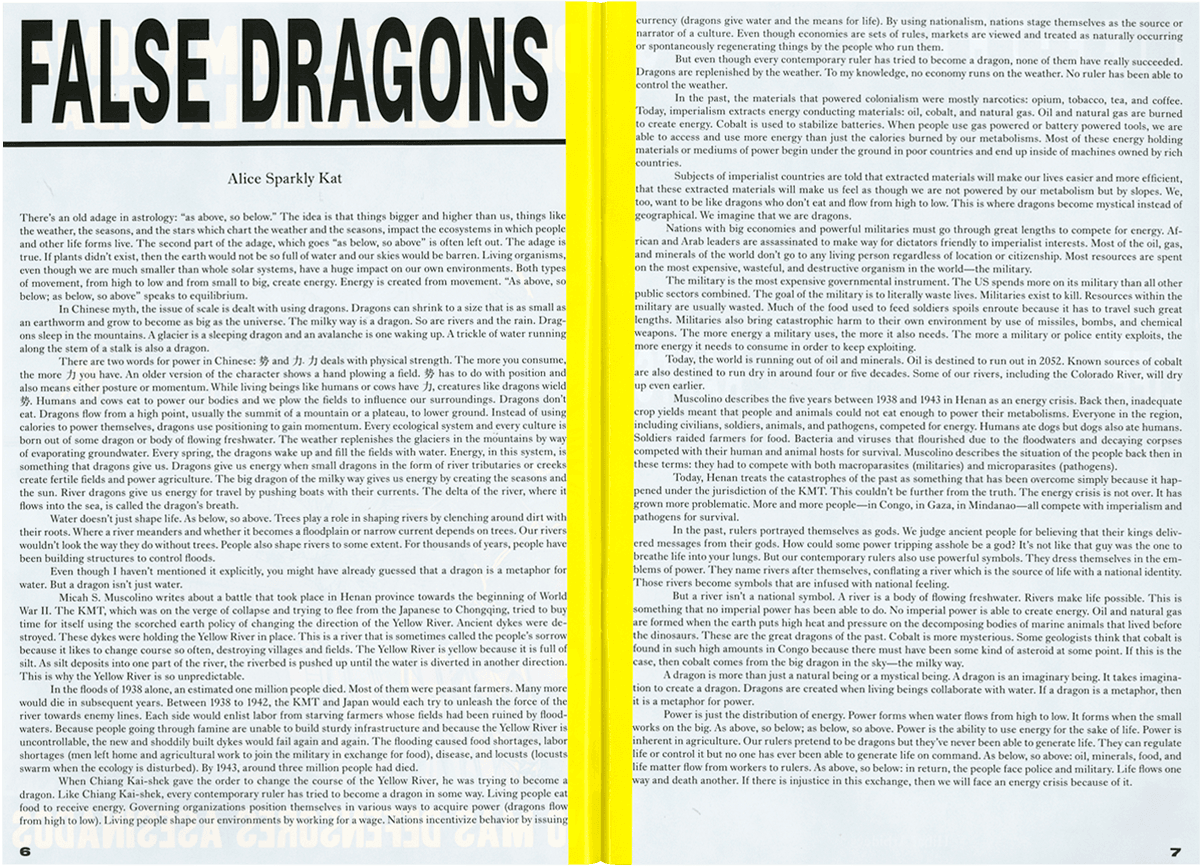
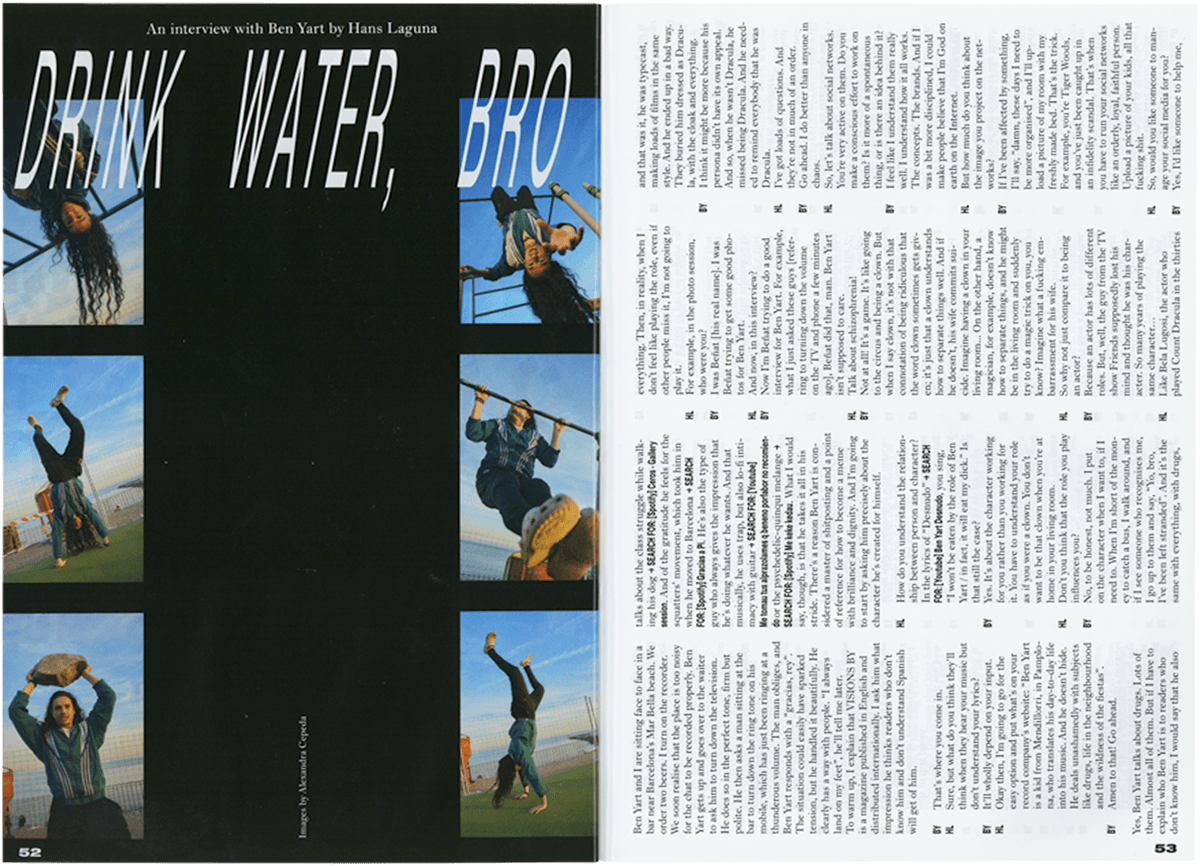
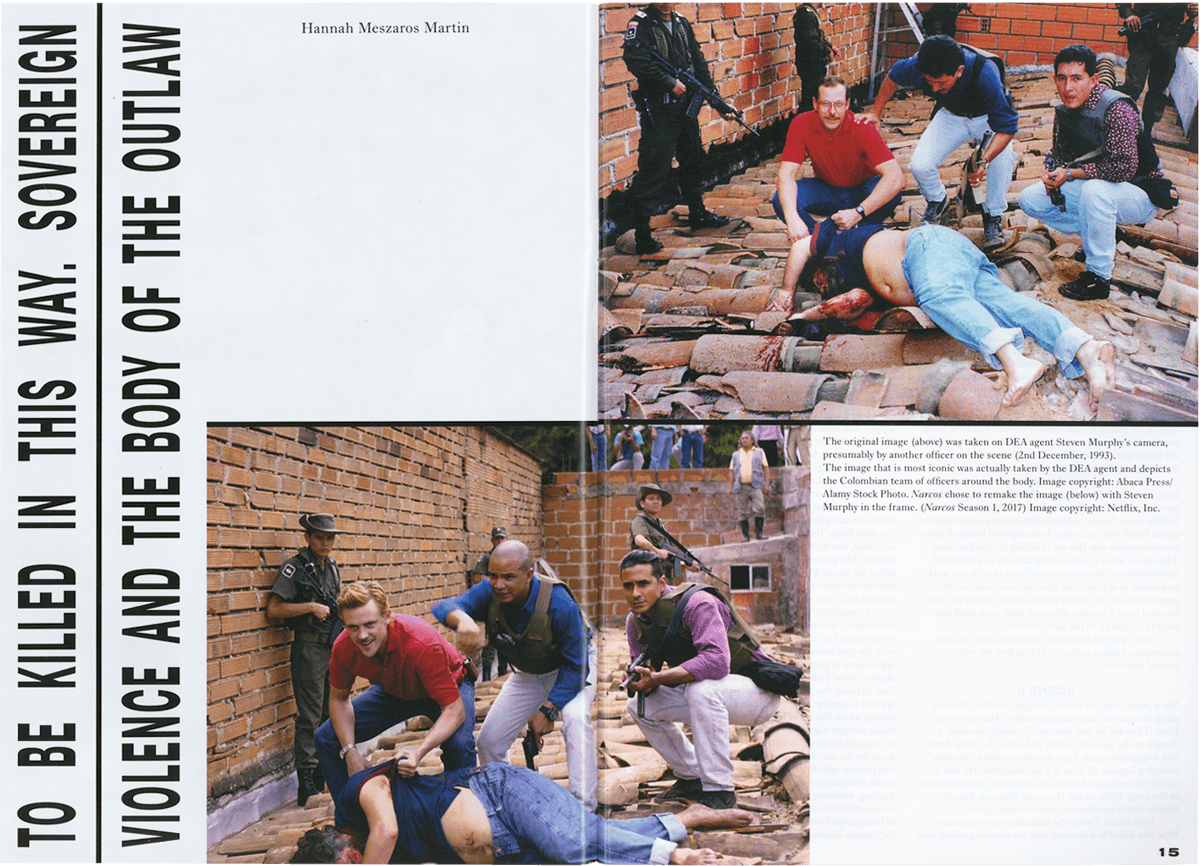
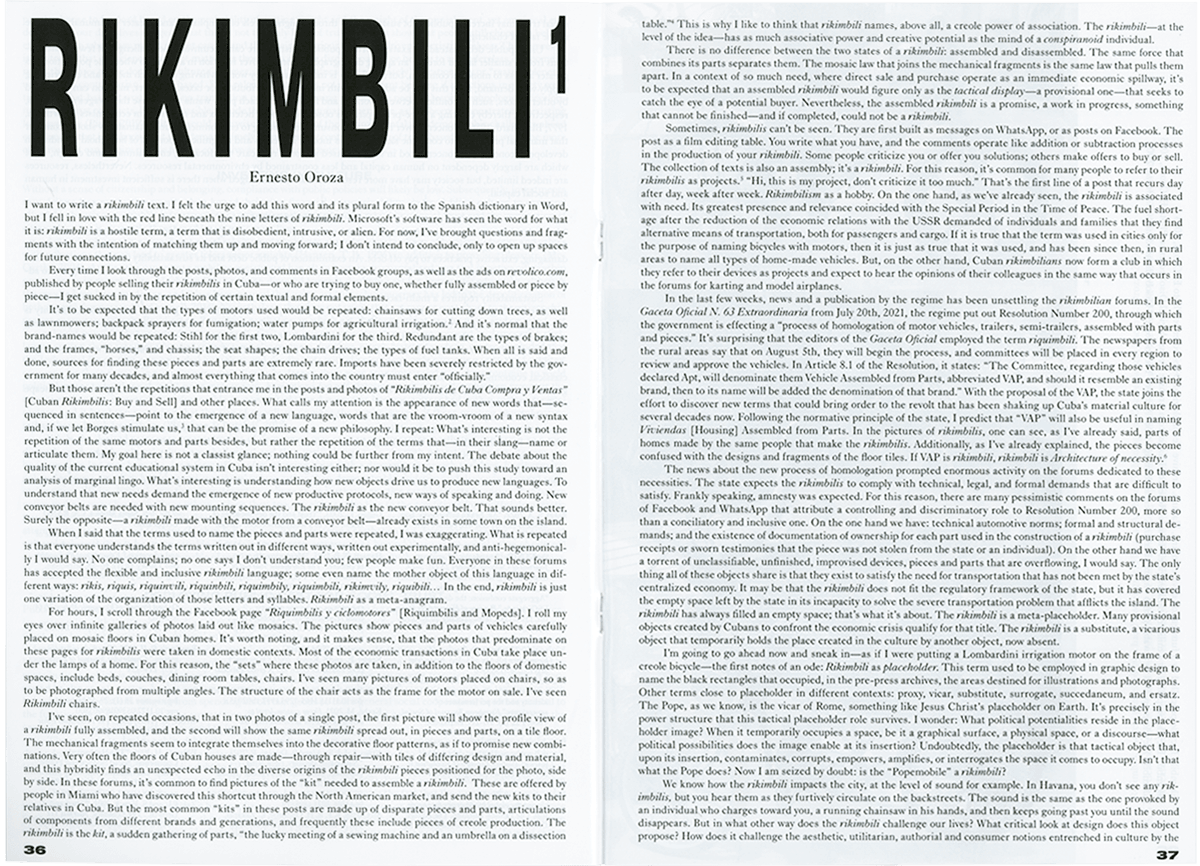
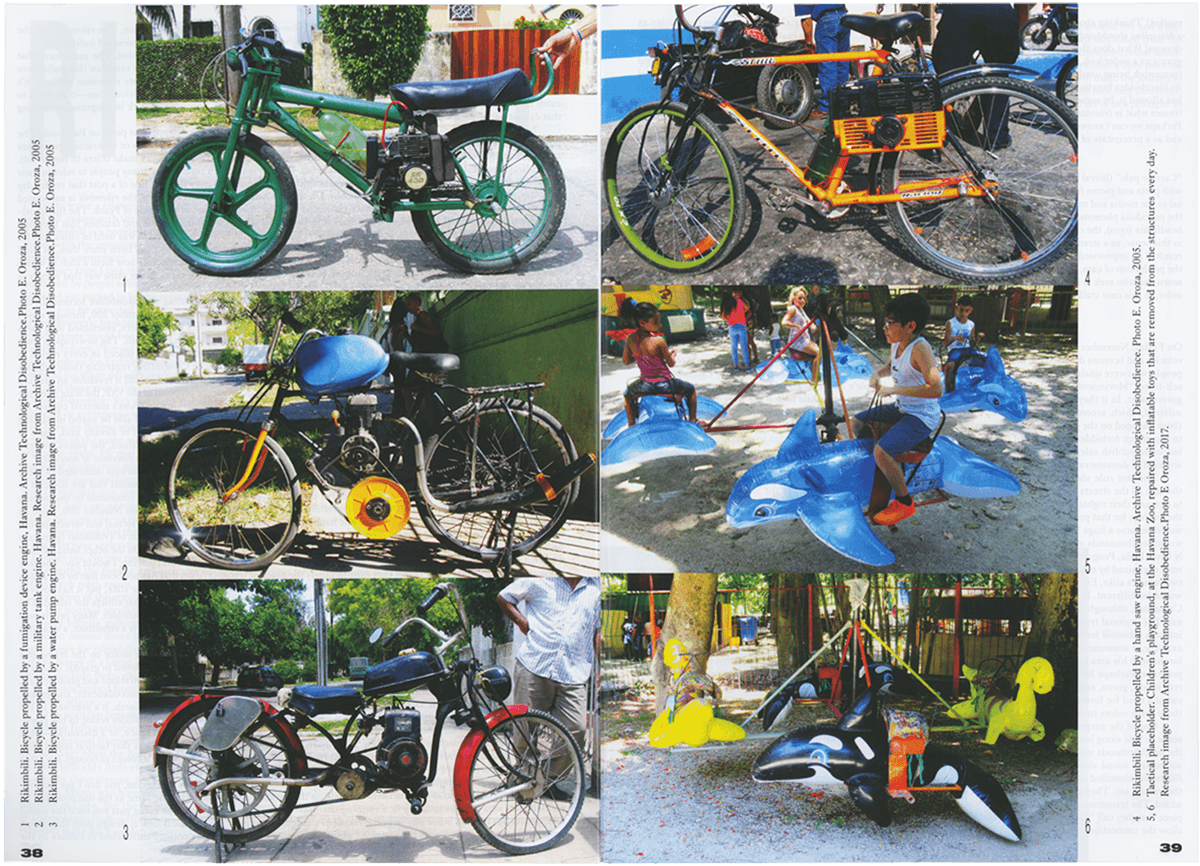
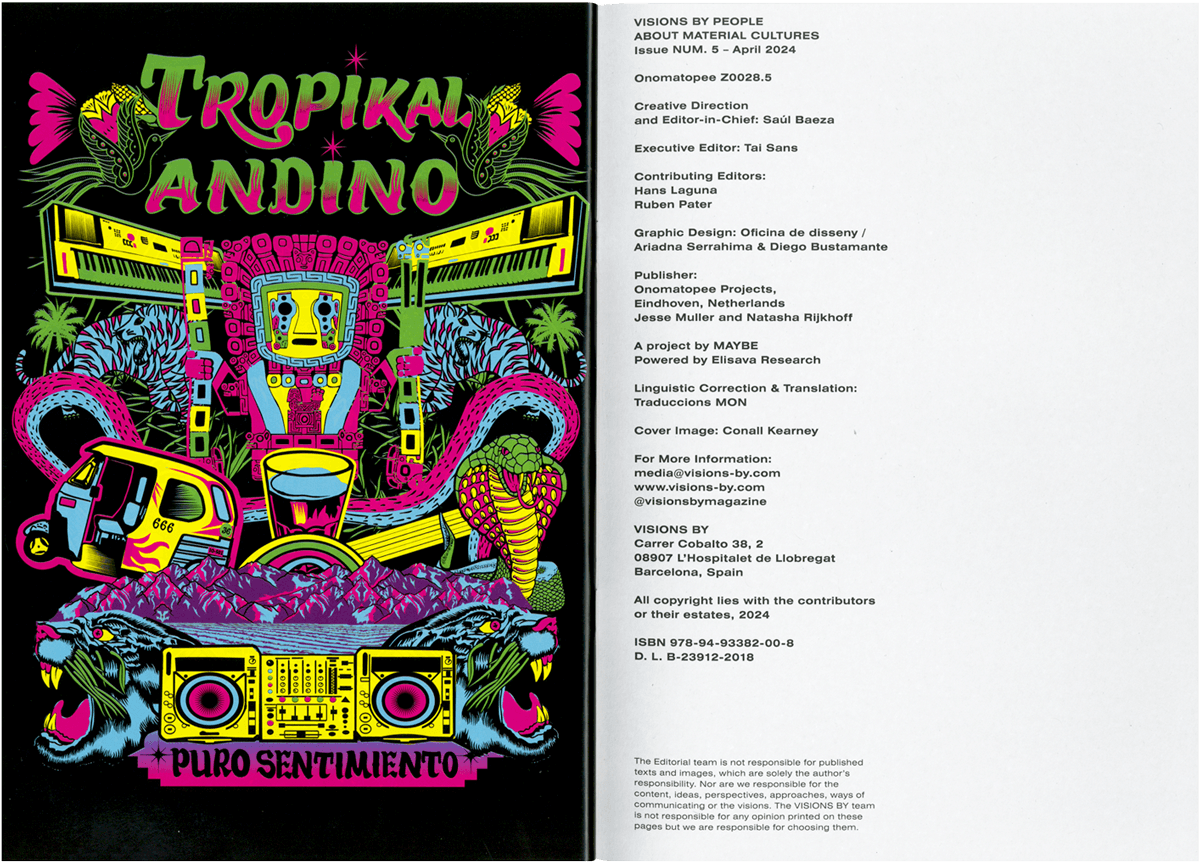
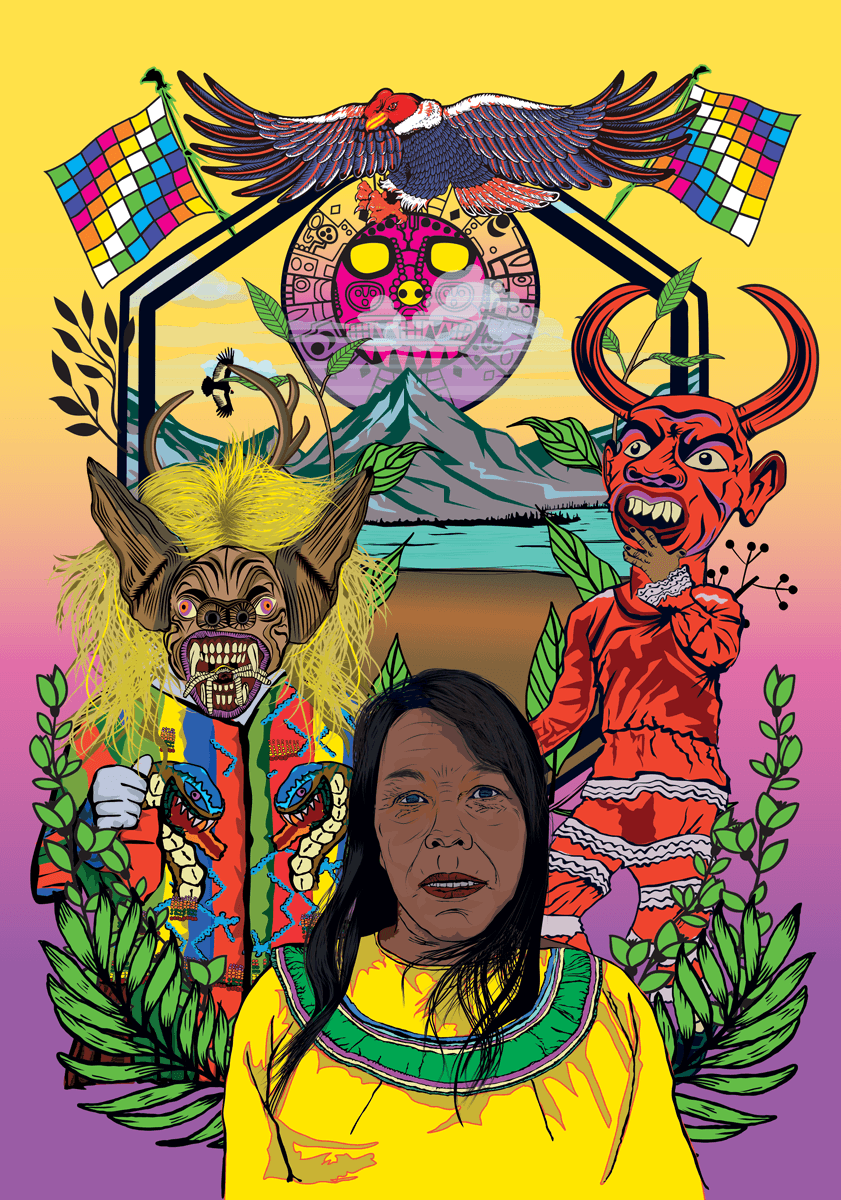
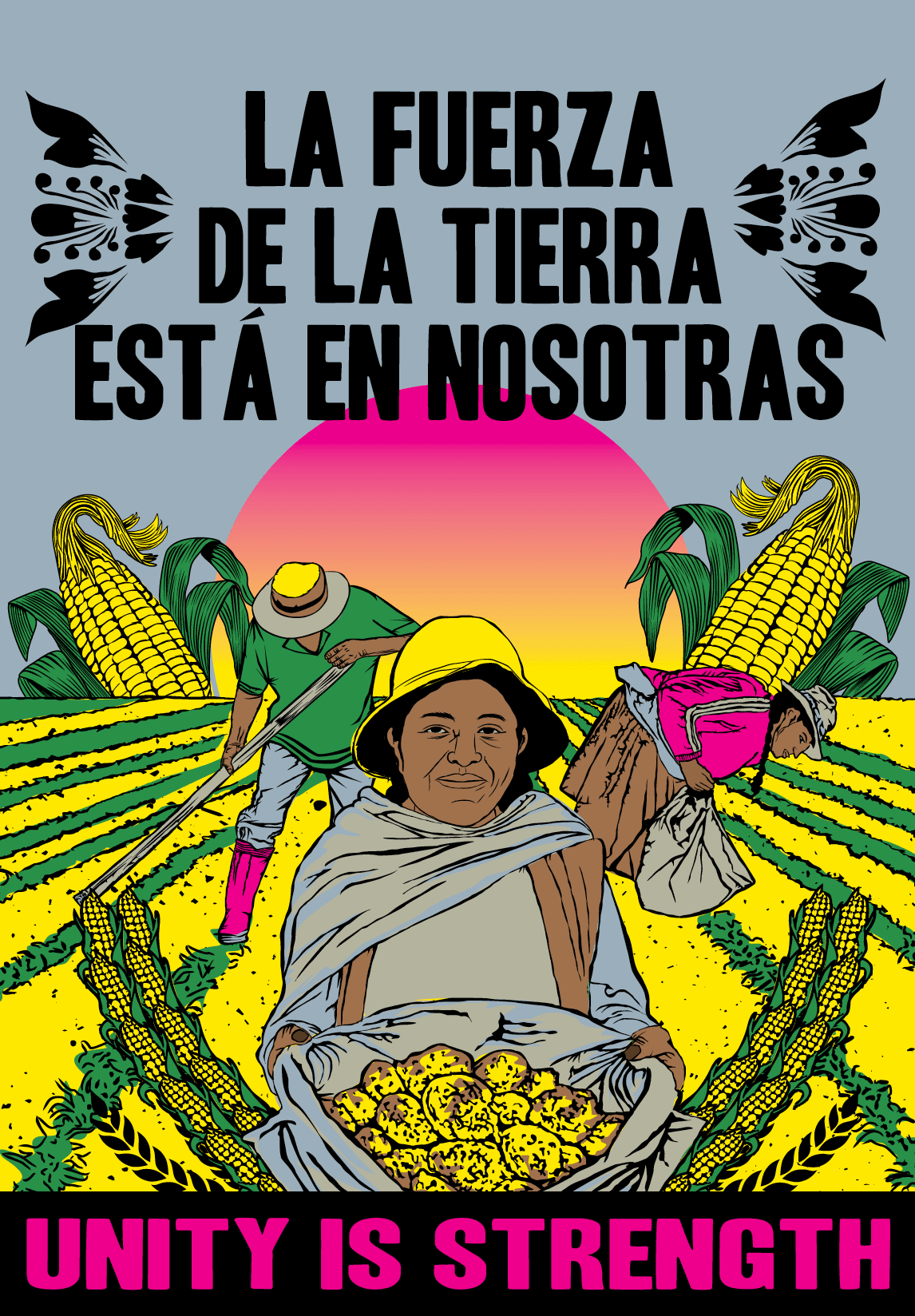
TODAS LAS SANGRES
LA FUERZA DE LA TIERRA
Amapolay
FALSE DRAGONS
Alice Sparkly Kat
A dragon is more than just a natural being or a mystical being. A dragon is an imaginary being. It takes imagination to create a dragon.
Dragons are created when living beings collaborate with water. If a dragon is a metaphor, then it is a metaphor for power. Power is just the distribution of energy. Power forms when water flows from high to low. It forms when the small works on the big. As above, so below; as below, so above.
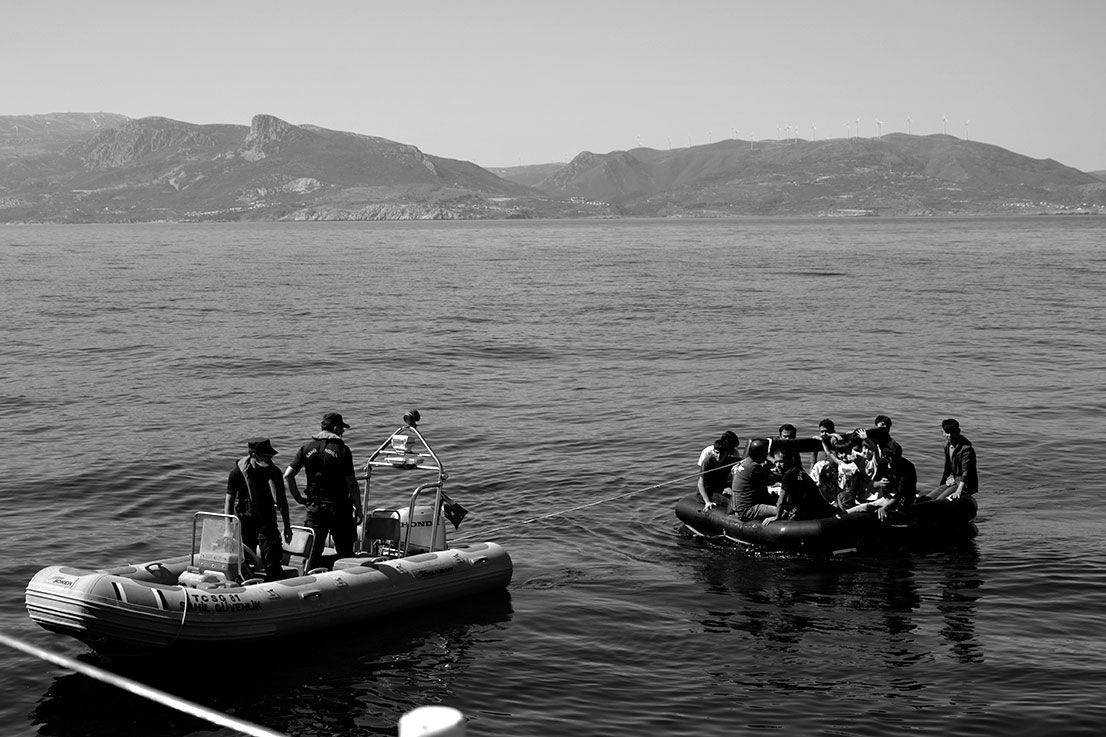
LIFE-THREATENING LIFE RAFTS
Hibai Arbide
Since March 2020, the Greek coastguard has been systematically carrying out pushbacks from the Greek islands. Although there are records of this illegal practice dating back more than a decade, it wasn’t until the New Democracy government came to power that these pushbacks became a structural tool of border policy. There are two main forms. The first occurs when the Greek coastguards intercepts a boat at sea. Often, the uniformed officers in the coastguard patrol boats are accompanied by hooded, armed men dressed in black military-style clothing that is not an official uniform. They break the engine of the boat carrying the migrants, or remove it and throw it into the sea, leaving the inflatable dinghy adrift. Often, to access the engine, they use long metal rods, which are also used to beat the refugees if they get between the hooded men and the engine. Having your children set adrift in a powerless boat with dozens of other people is one of the most horrifying experiences reported by those who come, frequently, directly from war. And yet, the second form of pushback is even more terrifying. It involves the use of life rafts.
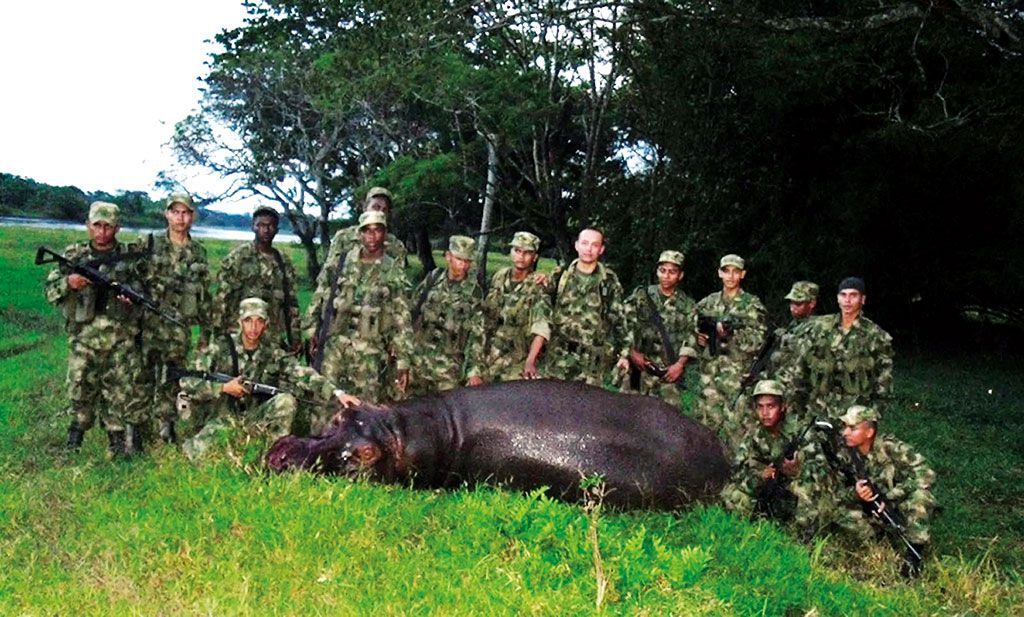
TO BE KILLED IN THIS WAY
Hannah Meszaros Martin
The descendants of Escobar’s original four are now unfortunately (for them) referred to as ‘cocaine hippos’. Cocaine is the alkaloid derivative of the coca plant, the substance which helped Escobar to construct the forms of sovereignty that made the importation of the hippo possible in the first place (the authors of the term were either thinking of this or the film Cocaine Bear). Coca is another outlawed being that can be killed with impunity.10 The enforced eradication of the plant with the herbicide glyphosate is an example of how in the long durée of the Colombian war, the concept of the outlaw encompasses a full-spectrum of different beings, both human and non-human, and has shaped the ways in which violence has been conducted. The coca leaf, posited as the enemy of the state, is subject to a mass, legalized, and enforced eradication. These outlawed specters of the state, the plants, animals, and the humans who live by their side, the hippo who escapes a drug lord’s pleasure palace, the body(ies) of the guerrilla, living not only in the forest but also within the city walls, are the ones who can be hunted down and killed with impunity. The construct of the outlaw has produced a border that has defined the human subject, the sovereign, and who/what it is permissible to kill or let die.11 Who is mourned and who is buried in a shallow grave along the Magdalena River, whose head is hung on a CEO’s wall filled with the dead of the world.
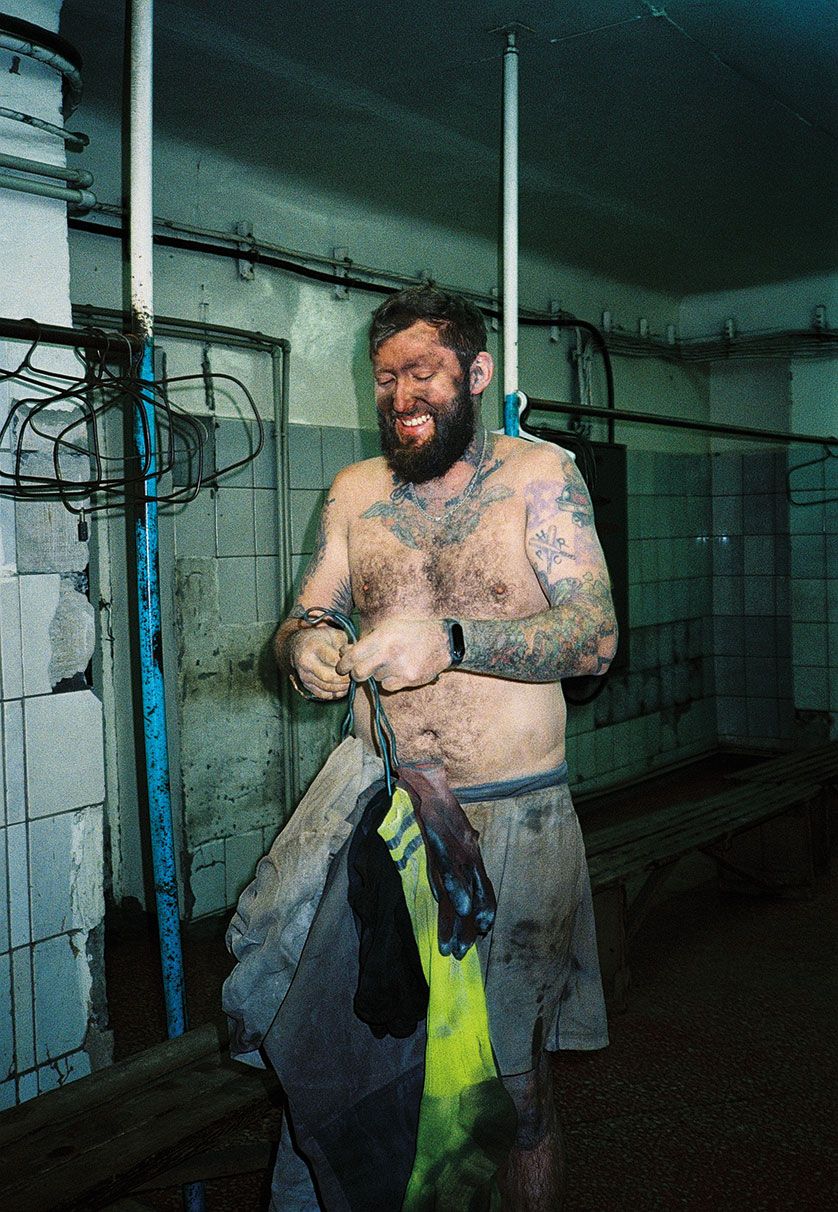
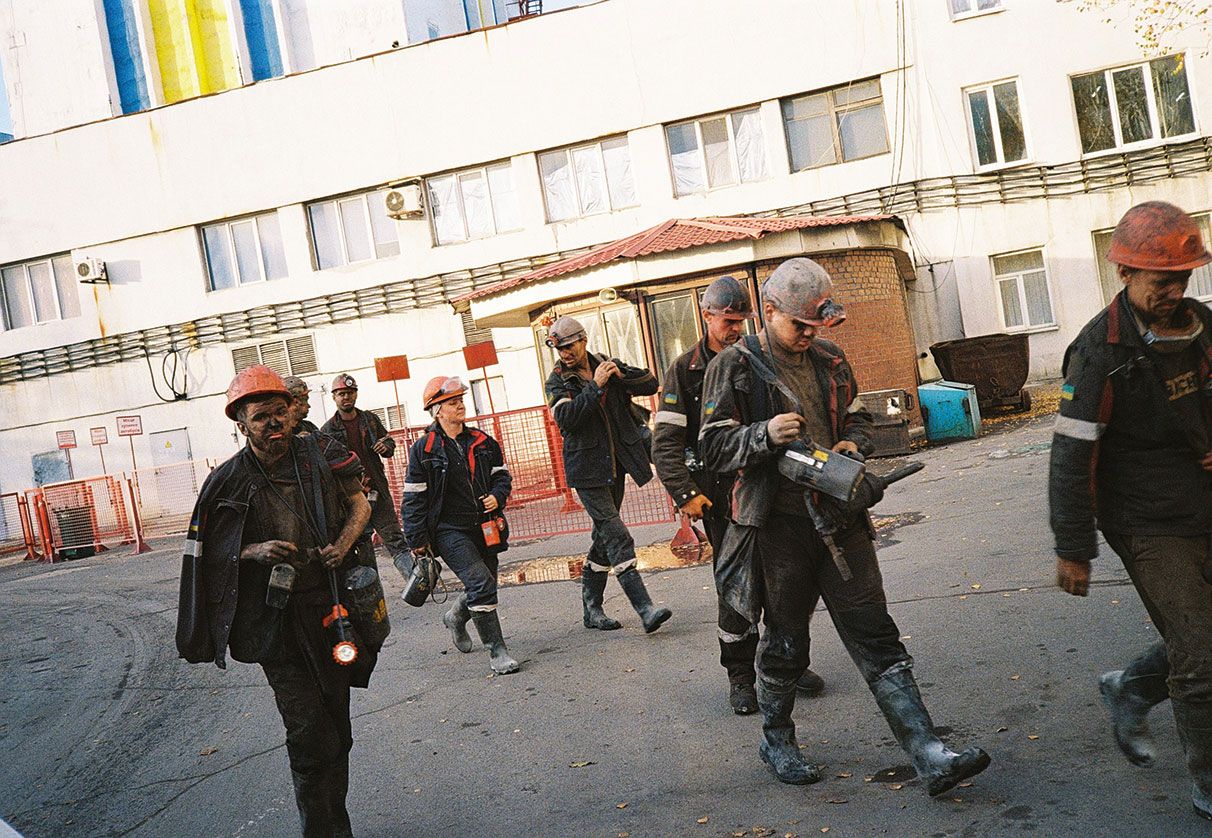
THE COAL MINERS OF DONBAS
Conall Kearney
“7 km from the frontline and 1 km underground, the men and women of the Pokrovsk coal mine continue to work even though the Russian military is slowly advancing in their direction. Since the start of the full-scale invasion of Ukraine in 2022, over half of the workforce in this mine has quit to join the Ukrainian military. Despite the smaller workforce, work continues as usual below ground as the mining industry is vital to the war effort by providing fuel and raw materials to the military. Just weeks before my visit it was struck by a Russian artillery strike, which resulted in one person being killed and many buildings above ground being badly damaged. However, the threat of violence does not deter the workforce. Every day, hundreds of workers still show up despite the distant boom of artillery. I arrive at the mine as a shift change is taking place, men completely black with coal dust exit a lift, the whites of their eyes and teeth presenting a stark contrast compared to the rest of their bodies. Most stay silent as they file past me and clean themselves before going home, a nod of recognition or a slap on the back as a bus load of spotless miners arrive for the next 12- hour shift.”
THE ROLE OF CULTURE IN PUBLIC FINANCE SUSTAINABILITY
Vienne Chan
While attempts to use art and culture for active citizenship programmes have returned poor results, educators have argued that this stems from the depoliticisation of art and democracy. An approach based on Rancière’s aesthetics in which what can be seen, said or done is challenged is an exercise in democracy itself and can strengthen democratic citizen- ship. Concrete changes need to occur for the exercise of democracy to be meaningful, and tangible results from cultural investments may not be seen quickly. However, over a longer timeframe, similar to that applied to educational processes, these cultural investments and practices in democracy can change the values upheld by citizens, including policymakers.
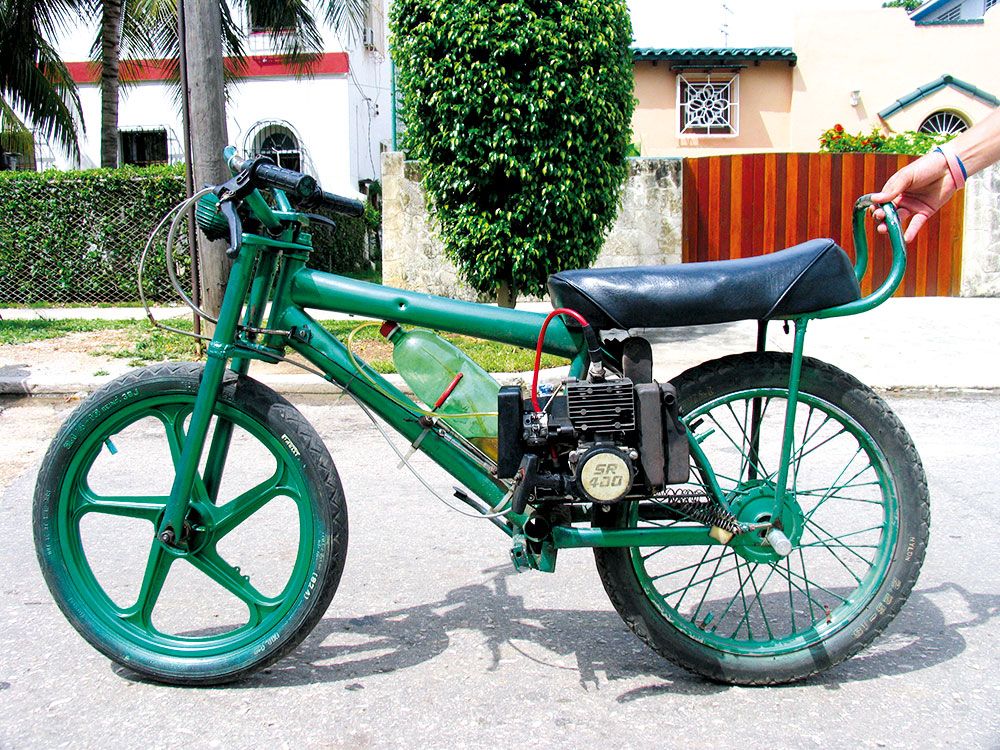
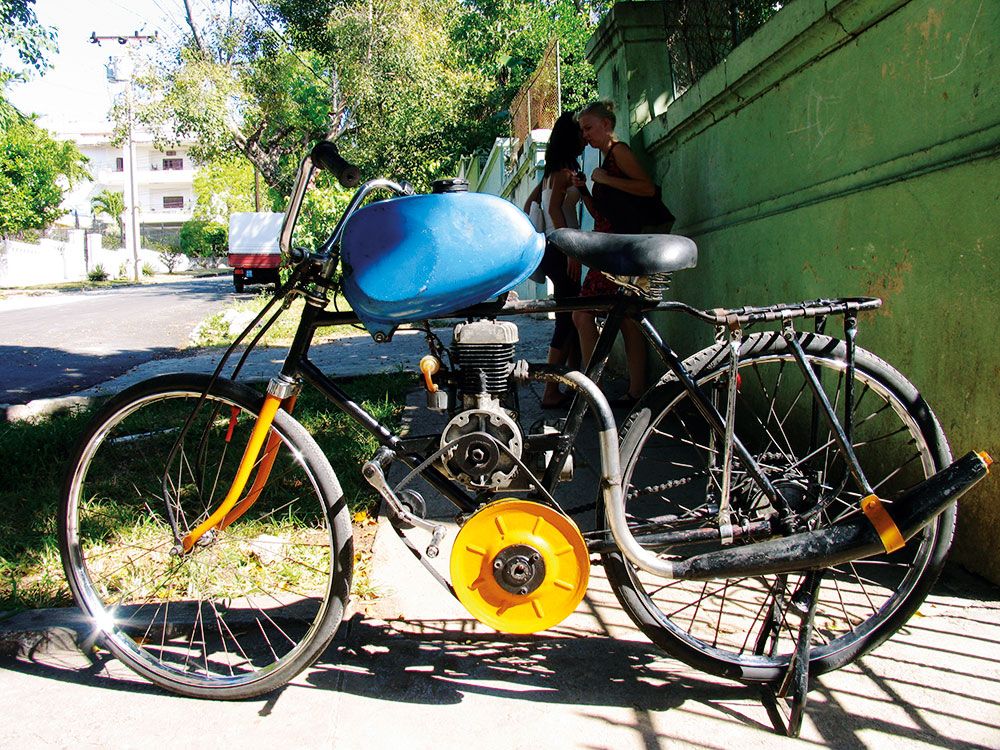
RIKIMBILI1
Ernesto Oroza
“Cara de palo” (literal translation: wooden face) is another Cuban term for automobiles created or altered by individuals with parts and pieces from other automobiles. The idea that cars have faces is as universal as automobiles and as universal as the media and materials where cars are depicted talking or with facial expressions. This interpretation, a result of the pareidolia phenomenon, is caused by the configuration of the front of cars, specifically the relationships between the headlights (eyes), the radiator and hood ornament (nose), and the front bumper (mouth). “Cara de palo” can be read, in this sense, as a strange, ungraceful, stiff face with a comical expression. It can also be used to name a face that is the result of an improvised creation, made with what is found, and not as the result of a design process. In slang, and beyond the production of cars, “Cara de palo” (like “cara dura”) is a term that refers to people who are not ashamed of public scorn and who seek at all costs their own benefit and above the established order. A “wooden face” is an entity that defies order, in this case traffic laws and urban order.
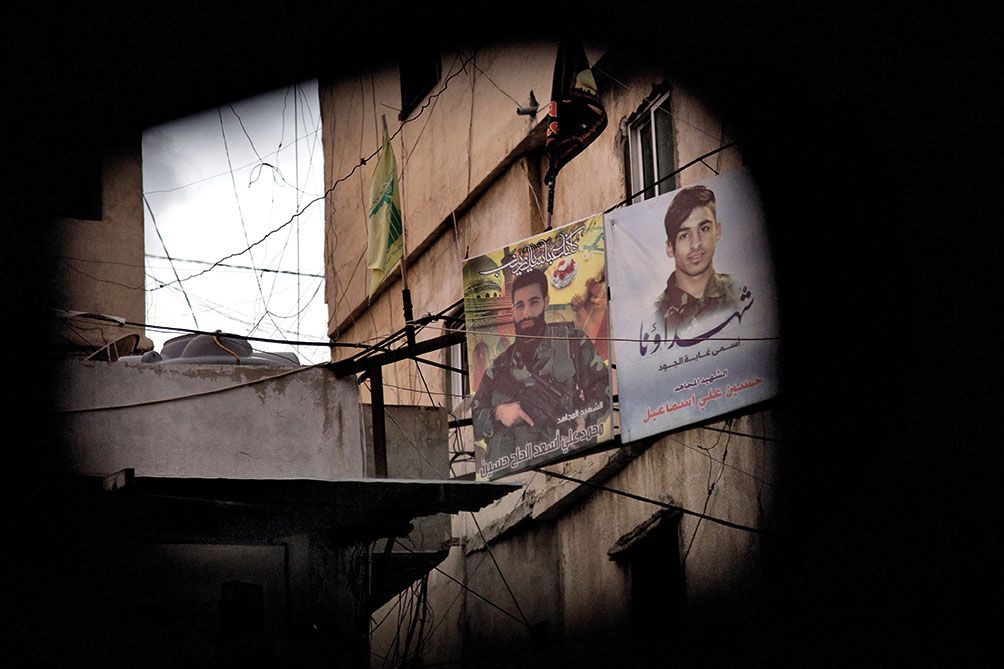
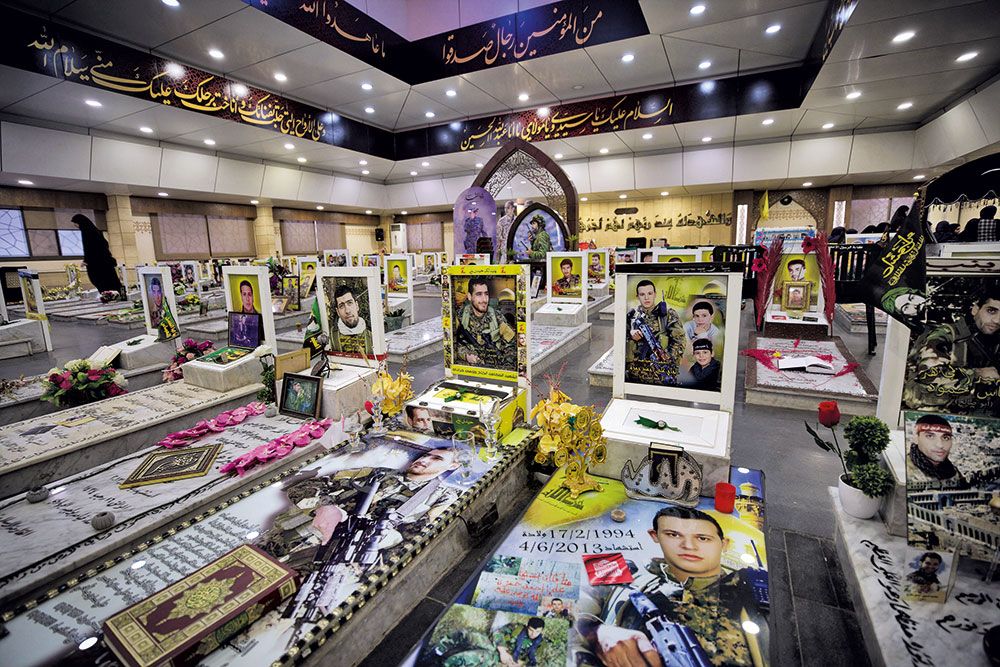
FUNERARY TECHNOLOGY AS A WEAPON OF WAR
Hibai Arbide
Due to its worship of martyrs, Hezbollah is labelled by its enemies as a death-loving cult because its adherents place no value on life. They describe them as fanatics who don’t care whether they live or die. Supporters of the Party of God vehemently deny this and point out that the vast majority of martyrs are from the Shia elite, i.e., the middle class, not those who don’t enjoy a decent quality of life. Most of the fighters are highly educated, own businesses or land, and have aspirations and ambitions. In other words, for them, resting in peace in tombs adorned with multi-coloured LEDs is not an imposition from above; it is a privilege.
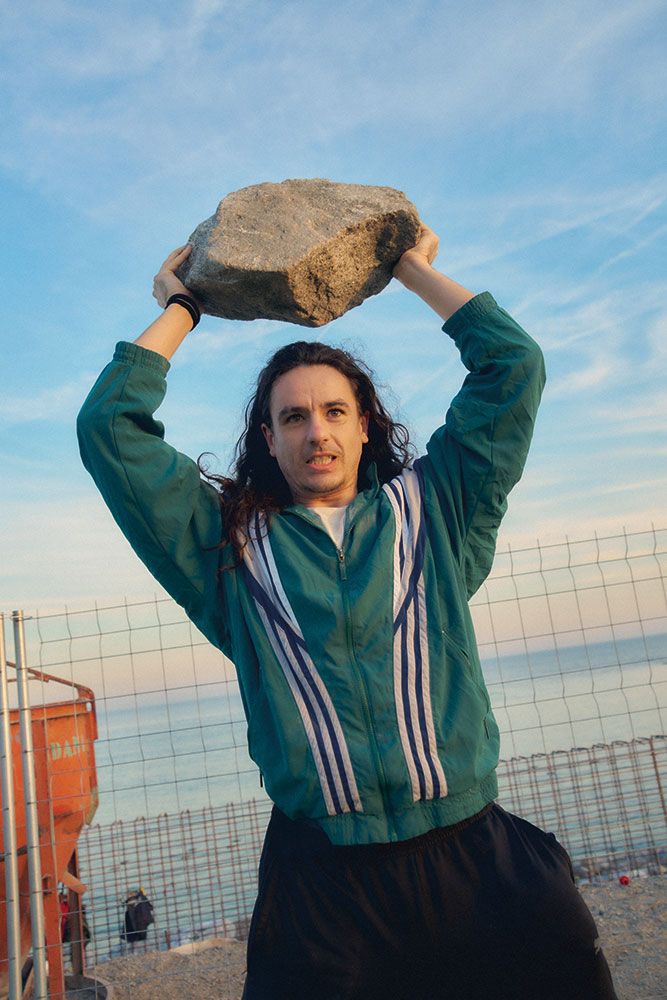
DRINK WATER, BRO
Ben Yart, Hans Laguna
“I think the conception we have in our heads is that a man with long hair is making it clear that he hasn’t done his military service. It comes from that, the fact that in the ‘60s anyone with long hair was showing that he hadn’t done military service. It is an act of insubordination. It gives off this vibe that says, “this son of a bitch is outside the system and does whatever he wants””
“If I’m partying and taking drugs like hell for three days, I’ll drink water for those three days. And I’ll nag my mates to drink water. On my Instagram, I used to call myself “Bebe agua, bro” [“Drink water, bro”]. It’s really fucking good for me to have like a bodybuilding mentality. I’m not saying bigorexia. I’m saying bodybuilding, which is knowing about nutrition and the nervous system.”
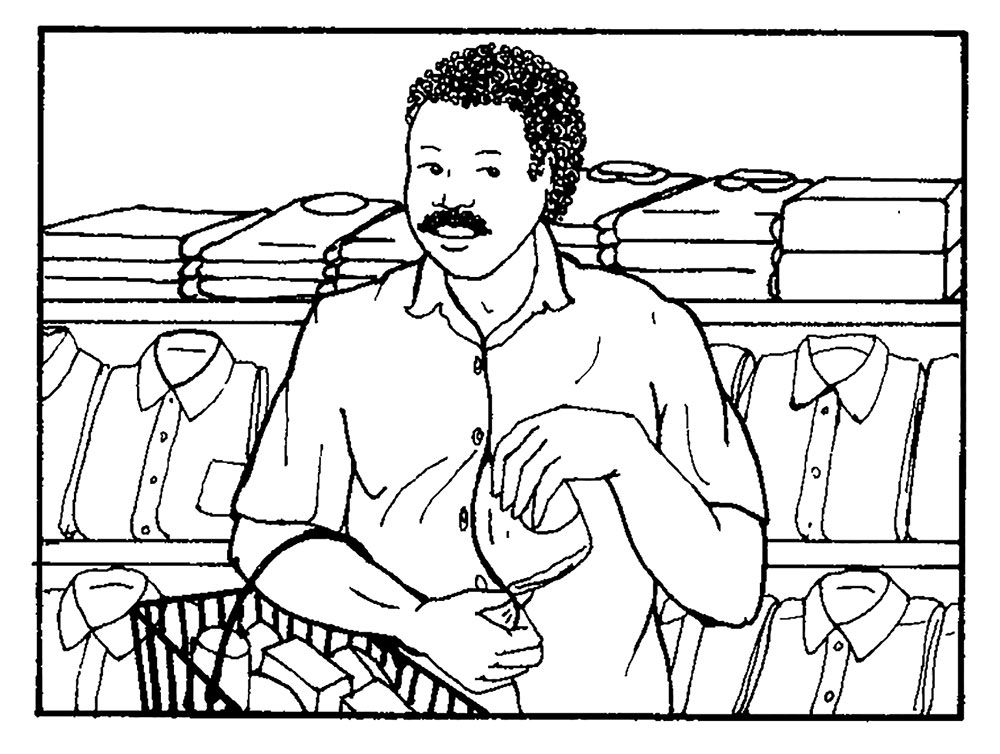
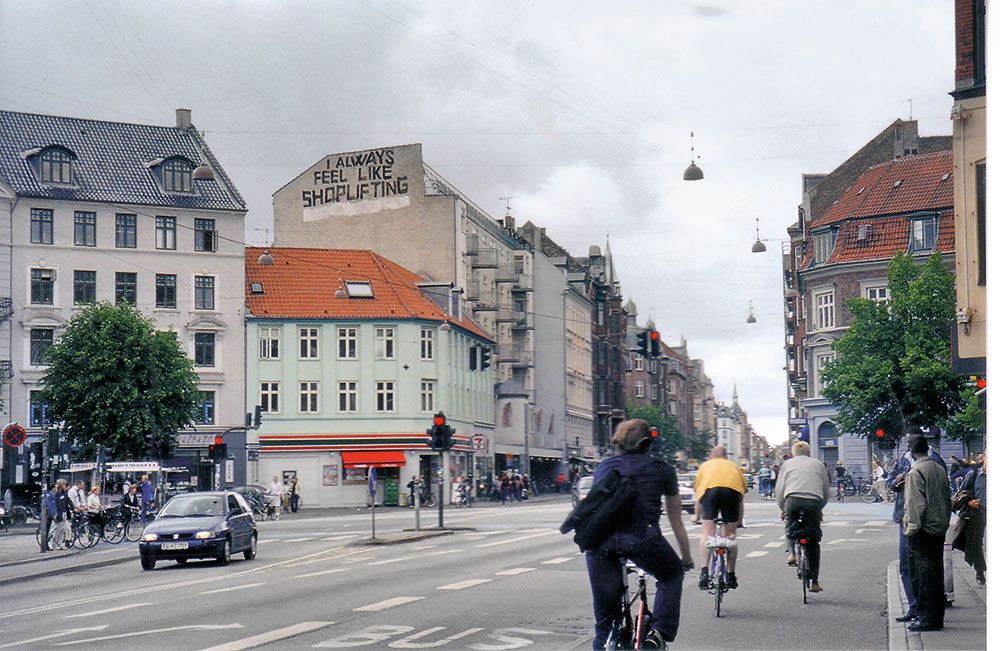
SHOPLIFTING: A HIDDEN HISTORY OF THE POCKET
Gabriel Calvin
Assuming that the implementation of money as a method of exchange is rather an imposition that protects the social order,20 then, to resist its constant mediation means at the same time to get rid of its artifice. Taking things without paying responds to a very intuitive form of demanding the gratuity of things, for a symbolic return to the commons. It is a gesture of civil disobedience and rejection that interrupts the social contract and the economy of exchange, making it possible, in the last instance, to satisfy needs that should be guaranteed beforehand for human beings simply due to the fact of existing.